Cavalleria rusticana / I Pagliacci (1976)
Genre :
Runtime : 0M
Synopsis
Plácido Domingo takes on the leading tenor roles in this 1976 live performance at the NHK Hall in Tokyo, Japan.
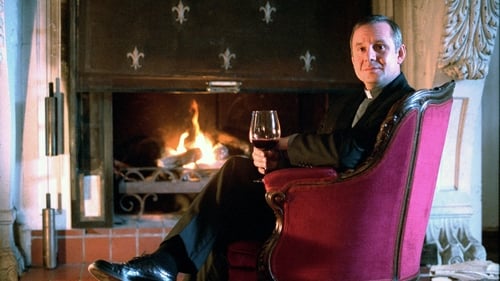
A man who accused a catholic bishop of abusing him when he was a child dies in the Austrian city Salzburg. Everyone except his widow and the eccentrical detective Simon Brenner keeps silent and believes that the man killed himself.
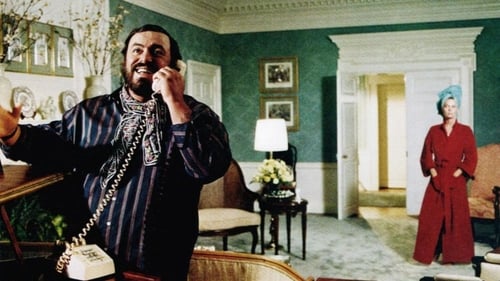
A famous opera singer, Giorgio Fini, loses his voice during an American tour. He goes to a female throat specialist, Pamela Taylor, whom he falls in love with.

The Metropolitan Opera is looking for the sea monster reported in newspaper headlines, because this monster sings beautifully! The "monster" is actually Willie, a whale who can sing in several voices simultaneously. A friend of his, a gull called Whitey, tells him about the searching ship, and Willie goes to audition, as it's been his ambition to perform on stage. Unfortunately, Professor Tetti Tatti from the Opera believes that one or more singers have been swallowed by the whale, and need to be rescued.

The Prince, Don Ramiro (who has changed places with his valet, Dandini), meets Cenerentola and they are instantly attracted to each other. When the Philosopher, Alidoro, later takes Cenerentola (dressed in magnificent clothing) to the palace, Dandini (still posing as the prince) tries to talk of love to her, but Cenerentola rejects him, saying that she is in love with his 'valet'. Ramiro, who has overheard this comment, is overjoyed, and immediately proposes to her, but Cenerentola says that he must first seek her out and then, if he still felt the same way, she would marry him. She gives him one of a matching pairs of bracelets, telling him to look for its companion on her right arm (she then leaves the palace). Ramiro ends the masquerade, and he and Dandini resume their true identities. The Prince then sets out on his quest - little realising that destiny, in the form of a violent thunderstorm, is about to take a hand in the affair.
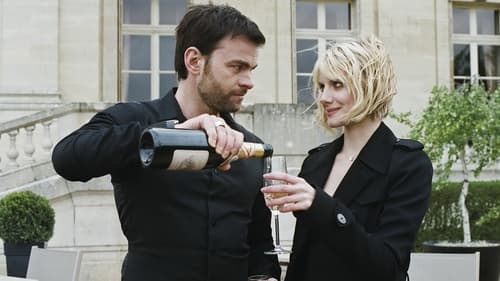
Lucretia is a killer for hire. Specialised in poisoning and passionate about opera, she'll have to fulfill a difficult contract in the heart of the Swiss alps. Posing as a singer, Lucretia will have to appear on the scene of the higly exclusive Festival d'Ermeux and try to kill one of her partners: British bariton Alexander Child. Having recently acquired a Scottish distillery, he remains the only obstacle to a strategic pipeline project with considerable economic stakes; having recently won a tough legal battle against British Oil, their last resort is to eliminate him. Complicating everything is Rico, sent by the French contra-espionage, who tries to infiltrate the orchestra and stop the plot against Alexander Child.
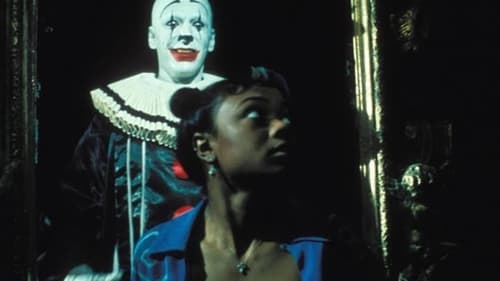
Upon the reopening of the opera house where her mother was murdered, a teen and her friends become the targets of a deranged killer dressed in a clown costume.

Deutsche Grammophon proudly presents the new faces of the opera world in a glamorous new live concert DVD: Anna Netrebko, Elına Garanca, Ramón Vargas and the highly acclaimed young French baritone Ludovic Tézier sing a wide range of Italian and French opera favorites. This recording features highlights from concerts at Baden- Baden's Festspielhaus, where tickets to this extraordinary event sold out in record time. The DVD features the four young stars performing duets and the popular quartet "Bella figlia dell'amore" from Rigoletto. Other highlights include Delibes' famous flower duet from Lakmé performed sumptuously by Anna and Elına.

After he is rejected by the Great Poochini as an opening act, Mysto the Magician gets his revenge by conducting his next operatic performance.

While the rest of the Hebrews bewail their fate, Samson alone trusts in God's promise of liberty. Abimelech, the Philistine satrap of Gaza, enters to mock the Hebrews' God, proclaiming the superiority of Dagon, and the Hebrews are afraid of him. But calls them to show some defiance, so Abimelech attacks Samson with his sword. Samson seizes the sword and strikes him dead. The Hebrews scatter and the High Priest of Dagon appears, cursing the Hebrews. When a messenger reports that the Hebrews are ravaging the harvest, the High Priest forms a plan to use Delilah to overcome Samson's strength. Delilah's beauty is such that Samson can't resist her for long. She begs to know the secret of his supernatural strength, but he refuses, though he says he loves her. Delilah betrays Samson by having some Philistine soldiers seize him and throw him into a prison in Gaza, where his hair is cut off.
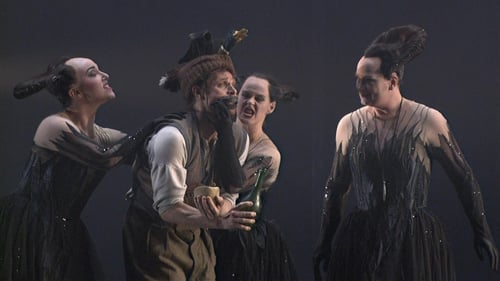
The Magic Flute opens with Prince Tamino being rescued from a serpent by Ladies in the employ of the Queen of the Night. Papageno the bird-catcher arrives and claims he killed the serpent, but the outraged Ladies padlock Papageno's mouth for his lie. They also show Tamino a portrait of Princess Pamina, the Queen's kidnapped daughter, and he immediately falls in love. Protected by a golden flute, he sets off with the bird-catcher Papageno to rescue Pamina from the clutches of the sorcerer Sarastro and a madcap adventure involving magicians, wild animals and very Masonic-like trials. Triumphing over all adversity, the lovers unite, as the forces of light banish the darkness and Papageno even finds a true love of his own. The internationally renowned Mozart interpreter Sir Colin Davis conducts the chorus and orchestra of the Royal Opera House and a glittering cast in David McVicar's 2003 production of the opera Mozart wrote in the final year of his life, recorded live at Covent Garden.

A possible impostor torments a newly crowned medieval czar who may have ordered the real successor's death.

The great Italian opera composer recalls his eventful life on his deathbed: his childhood in Busseto, his studies in Milan, his first opera "Oberto, conte di San Bonifacio", the death of his wife and his children killed by smallpox.

Massenet's opera centres on its charming but contrary heroine, the vivacious young Manon who longs for luxury and excitement. We first encounter her en route to a convent, where her family are sending her to be educated. Along the way, she falls in love with the young student Des Grieux, and, impetuously, runs off with him. She soon leaves him, however, to become the mistress of a rich nobleman. Thus begins her descent into criminality and depravity, all too soon dragging the besotted Des Grieux with her, until she is imprisoned. Despite its tragic story, the opera is full of French charm and vitality – typified by the ambiguous Manon herself. Her plight is touching because of the subtle play of innocence and calculation in her character. The score contains many sparkling arias and ensembles, moving rapidly from moods of exuberance to tenderness, with perfect dramatic timing. Recorded live at the Staatsoper Unter den Linden, Berlin, April/May 2007.

Live performance from Schwetzinger Festspiele, 1988. What sets this IL BARBIERE DI SIVIGLIA apart from all others available is its elegant realism. None of its visuals are the least bit cartoonish or blatantly designed for comedy. Dr. Bartolo’s house is a stark, stern-looking structure of plastered brick with a comfortable yet plain, white-curtained interior, while the costumes are highly realistic 18th century garb in subdued colors. Yet despite its fairly austere appearance the production is delightful, thanks to its performers and staging. The stage business is lively, witty and free of excessive slapstick, and every singer brings his or her character to life, all offering rich, vibrant characterizations that strike a perfect balance between comedy and humanity.
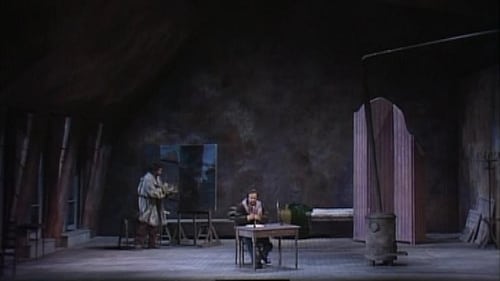
Giacomo Puccini's bittersweet opera of high-spirited bohemians and the doomed love between Rodolfo, the idealistic poet and Mimi, the consumptive flower-maker, is a beautifully balanced series of tableaux depicting the infectious joie de vivre of youth and the tragic waste of disease and separation. The legendary and incomparable partnership of Mirella Freni and Luciano Pavarotti as the two lovers has been captured in this special live recording from stage of the San Francisco Opera. Brian Large has adapted Francesca Zambello's production for video, further illuminating the fascinating interaction of Puccini's characters. Gino Quilico sings Marcello, the colorful and moody painter, whose tempestuous relationship with the flirtatious Musetta (sung by Sandra Pacetti), comically mirrors the more profound love of Rodolfo and Mimi. Nicolai Ghiaurov sings Colline.

AIDA, an Ethiopian princess, is captured and brought into slavery in Egypt. A military commander, Radamès, struggles to choose between his love for her and his loyalty to the Pharaoh. To complicate the story further, Radamès is loved by the Pharaoh's daughter Amneris, although he does not return her feelings. Sonja Frisell’s production captures all the grandeur and excitement of Verdi’s monumental opera, particularly the great triumphal scene where the Egyptian army, led by Radamès (Plácido Domingo), returns victorious from war. Aprile Millo is Aida, the slave girl whose love for Radamès has her squaring off with Amneris (Dolora Zajick), the Egyptian princess who also loves him. Sherrill Milnes is Amonasro, and James Levine leads The Metropolitan Opera Orchestra, Chorus, and Ballet.
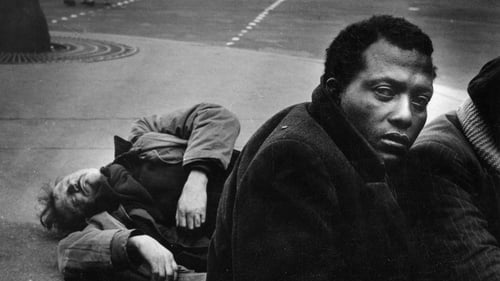
Impressions of the rue Mouffetard, Paris 5, through the eyes of a pregnant woman.

Verdi’s monumental score is fully the equal of Shakespeare’s famous tragedy—and both demand great actors. This is one performance where both playwright and composer are well served. Plácido Domingo’s Otello is one of the glories of the operatic world, beautifully sung and so commandingly acted that audiences are devastated by the end. Renée Fleming’s ravishingly beautiful Desdemona is deeply moving, and as Iago, James Morris is as beguiling as he is menacing. Under James Levine’s conducting the Met orchestra and chorus are vital characters in the drama.

Loosely traces the life of tenor Enrico Caruso (1873-1921). He loves Musetta, in his home town of Naples, and then Dorothy, the daughter of one of the Metropolitan Opera's patrons. Caruso is unacceptable to both women's fathers: to one, because he sings; to Dorothy's, because he is a peasant. To New York patricians, Caruso is short, barrel chested, loud, emotional, unrefined. Their appreciation comes slowly. The film depicts Caruso's lament that "the man does not have the voice, the voice has the man": he cannot be places he wants to be, because he must be elsewhere singing, including the day his mother dies. Throughout, Mario Lanza and stars from the Met sing.

















